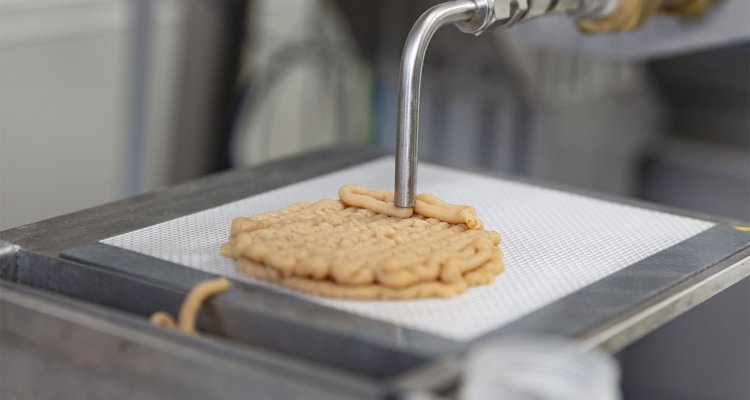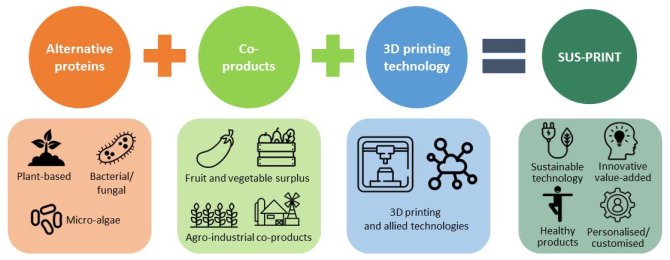
Project
SUS-PRINT: Sustainable Foods by 3D food printing
SUS-PRINT will fill knowledge gaps and overcome technology hurdles in the production of next generation plant-based foods. By using plant and alternative proteins with low techno-functionality and upcycling of perishable food by-products using 3D printing technologies and specifically using an innovative protein structuring printer, healthier, more sustainable and customisable plant-based foods is produced.
Background
Important protein techno-functionalities including water/oil binding, solubility, gelling, emulsifying among others are lacking in alternative plant proteins such as fava bean, mungbean and algae to name a few. As a consequence, plant proteins with low techno-functionality are challenging to use, especially in plant-based meat/fish analogue applications using traditional food processing technologies. The use of a protein structuring printer offers several advantages over traditional food processing, especially when using low techno-functional ingredients and materials.

Project ambition
SUS-PRINT will enable the local, on-demand production of customisable, healthy and sustainable foods and will help minimise waste by employing a modular protein structuring printer which can easily be deployed in local areas. Ultimately, the creation of value-added foods from locally sourced ingredients in SUS-PRINT will diversify the selection of sustainable protein foods available to various consumers.
Approach
The SUS-PRINT consortium, representing important key stakeholders in the food industry, will work together to identify, address, and overcome challenges and accelerate the availability of sustainable foods, based on alternative plant proteins. SUS-PRINT will also help realize the objectives of the TKI call mission D2 (The Consumer, Sustainable and Healthy Food, in a Green Living Environment) by focusing on:
- Valorisation of perishable side products (e.g. using perishable fruit and vegetable oversupply) and alternative proteins with low techno-functionality;
- Developing customisable healthy and sustainable foods for various consumers (such as elderly, youth, special needs use cases);
- Improving the capability of a key technology (3D-food printing);
- Understanding the interaction between ingredients, functionality, and processing in developing structures/textures for a new generation of plant-based food products which are both healthier and more sustainable than currently available.